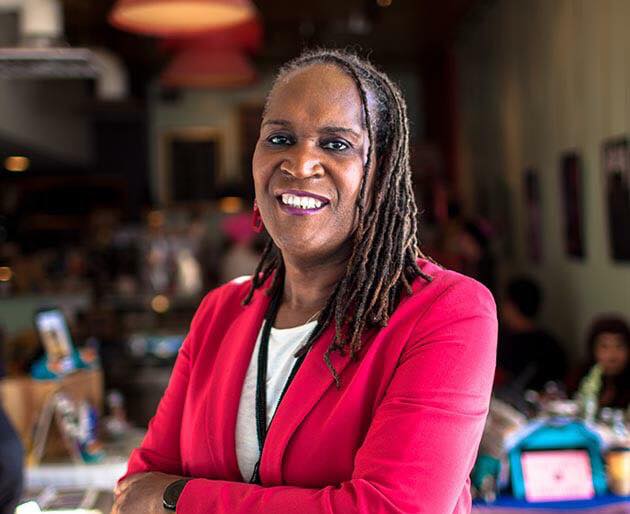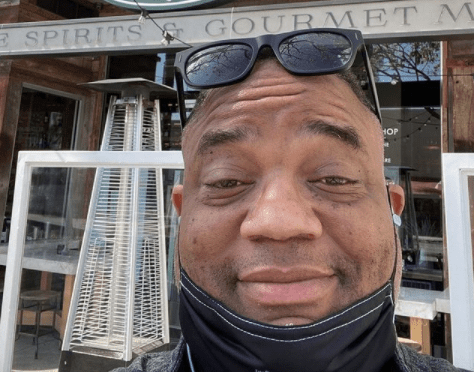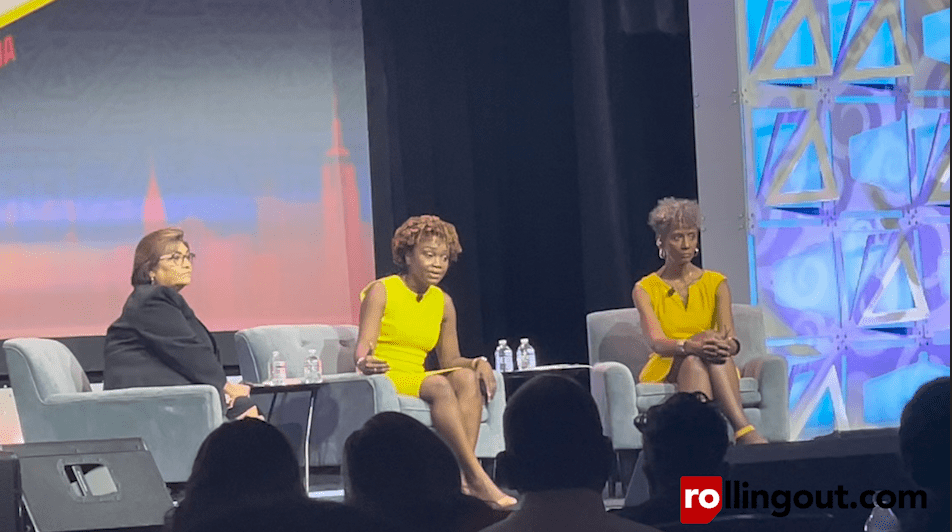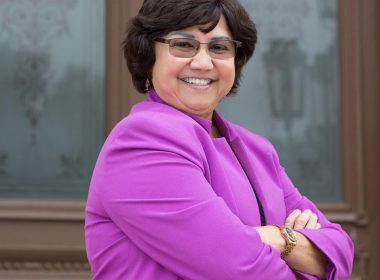
Just seven short weeks ago (at press time), Andrea Jenkins decided she would take a seat. The newly minted Minneapolis City Council vice president, Ward 8, is one of two Black transgender representatives on the City Council, representing South Minneapolis. She recently made headlines as she revealed that she is dealing with multiple sclerosis, an auto-immune disease that impacts the nerves and disrupts the flow of information between the brain and the body. She received the diagnosis last August — in the middle of her City Council campaign. The council passed an honorary resolution to recognize National MS Society’s Multiple Sclerosis Awareness Week this March in Minneapolis and recognize March 14 as MS Awareness Day.
Here, she talks about her first 100 days in office.
What is your day-to-day like at work?
My daily schedule is super hectic, lots of meetings, dealing with different topics. Then, I respond to emails, voicemails, etc. Then there are always the interruptions that occur. I frequently have public appearances speaking with college groups, high school and elementary school students, and other nonprofit organizations.
What inspires you to show up at work every day?
The realization that I have to ability to impact someone’s life in a positive way is what motivates me to show up every day.
How did you determine your career path?
This is an interesting question, I certainly had a desire to help people early on, in high school I thought I wanted to be a lawyer, so many of my family members had been incarcerated. I thought being an attorney would be an opportunity to help. That course of study never materialized but my desire to improve folks lives never wavered. I completed a B.A. in human services, and worked as a recruiter for Junior Achievement, encouraging business and political leaders to mentor young fifth and sixth graders about the world of business. Next, I went to work for a culturally specific chemical dependency treatment center as an employment counselor assisting folks in recovery seek an obtain employment and educational opportunities. I did that for two years and went on to a 10-year career delivering human services through the county that I live in, assisting moms and children receiving public assistance obtain employment and educational services. It was that role that I became disenchanted with simply delivering human services because I was continually seeing the same people with the same issues on a daily basis. It was like a revolving door. I decided to pursue a master’s degree in community development so that I could work on policies that might have a larger impact on creating positive changes in the community. Upon graduation, I was offered a position working as a policy aide for two different city council members. I did that work for a little over 12 years, and it provided me with the insight and the awareness that change comes from not only the grassroots activism that is so necessary but from those whom we elect to public office. Consequently, I put my bid in.
Describe the voice of success that you hear in your head.
The voice of success that I hear in my head is saying, “If you can conceive it, and believe it, you can achieve it” but there must be a plan. We have to set goals. Review them constantly. Shift directions when necessary. But, always stay focused.
Community success based on what you do in the community means what to you.
I am a part of several “communities.” I am a proud African American. I am a transgender woman. I am bisexual/queer. I am a Minneapolitan. I am an artist, poet, and of course, I am a human being. Success looks different in each of those communities. I absolutely believe that when we center the most marginalized folks in our community, then everybody benefits. That for me would be success, convincing activists, policymakers, corporate and community leaders, that this axiom is true.
What role does technology play in your daily life?
I use a cellphone. I check my emails. I have a Facebook and a Twitter account, though I don’t post daily. I would say that technology plays a significant role in my daily life as it does for most folks. I wish I were a bit more technologically competent, but I’m working on it.
If you could change one thing about the world, what would it be?
“If I ruled the world, I’d free all my sons, I love ‘em, love ‘em, baby” and to quote the great philosopher Nas, once again “end all racism, sexism, all hatred and bigotry.” My thoughts, let women run this!
If you could change one thing about yourself, what would it be?
To take more time for self-care.
What are the key components of your political platform?
1. When we center the most marginalized folks in our community, then everybody benefits.
2. Prioritize racial equity.
3. Police accountability.
4. Affordable housing.
What has changed about the delivery of government services to its constituents? Do you agree or disagree with the change(s)?
I think technology and the use of social media have dramatically changed folks access to their public officials. I think this is very positive, though it does present some challenges.
Name three of your political accomplishments.
I have only been in office for seven weeks.
1. Winning
2. Being elected vice president
3. Introducing the Black History Month Resolution and establishing the Office of Immigrant Affairs [for] the city of Minneapolis.
Who are your political role models?
1. Harriet Tubman
2. Shirley Chisolm
3. Maxine Waters
4. Barack Obama
Define public servant.
A person [who] is willing to listen to the people they represent and balance the competing interests while determining the right course of action based on their values, life experience and judgment to move the course of human history forward.













